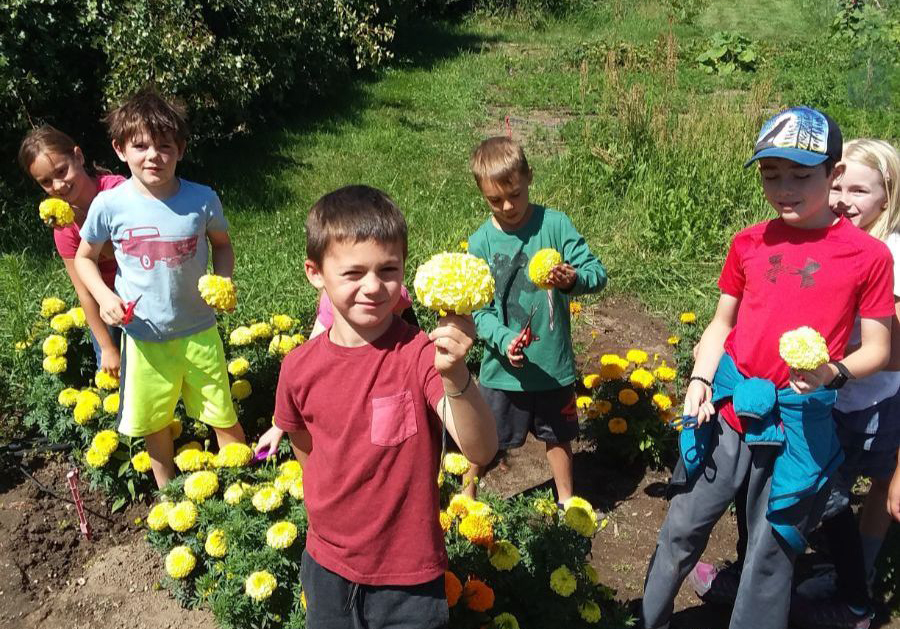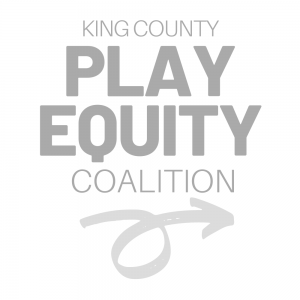Summer Garden Camp weaves reading and math into hands-on gardening fun for elementary school students in the Methow Valley.
Launched in summer 2019, this camp for elementary school students weaves reading and math instruction into hands-on lessons about nutrition and gardening. During the four weeks of camp offered during the first year, children created fun and exciting art projects inspired by nature, played garden games, dug in the dirt for worms and bugs, and peered through microscopes to solve garden mysteries.
Inspiring youth to grow healthy food and connect with nature
“We’re blessed to have our schoolyard garden,” says Katharine Bill, family and community engagement coordinator for Methow Valley School District, a partner of Classroom in Bloom, which runs Summer Garden Camp. “The beautiful garden space sets the stage for success from the start. Two talented and knowledgeable instructors who love what they do brought their positive energy to every child every day.”
Teachers and volunteers from Classroom in Bloom respect students’ inquiry process, letting children learn their own way while guiding them to use garden tools safely.
“These collaborative outdoor experiences on the farm build self-esteem, develop personal responsibility, foster community involvement, and connect each student’s personal health to nature and the environment. Teams collaborate to plant seeds, harvest crops, grow food for others in need, and share a meal based on a good day’s work.”
— Kim Romain-Bondi, Executive Director at Classroom in Bloom
www.classroominbloom.org
Weekly Summer Garden Camp themes
- Garden Art
- Garden Games
- Animals and Insect Camp
- Garden Mysteries
Four weekly topics were offered the first year. Two additional weeks and more topics are in the works for summer 2020! Learn more about Summer Garden Camp.
Summer Garden Camp is one of eight summer learning and nutrition programs in central and eastern Washington funded through School’s Out Washington’s Feed Your Brain project for 2019-21. Resources for summer programs like these are limited in rural areas. Without them, kids not only risk falling behind academically but also going hungry, because of limited access to the free and reduced-price meals that keep them nourished during the school year. Learn more at School’s Out Washington.





